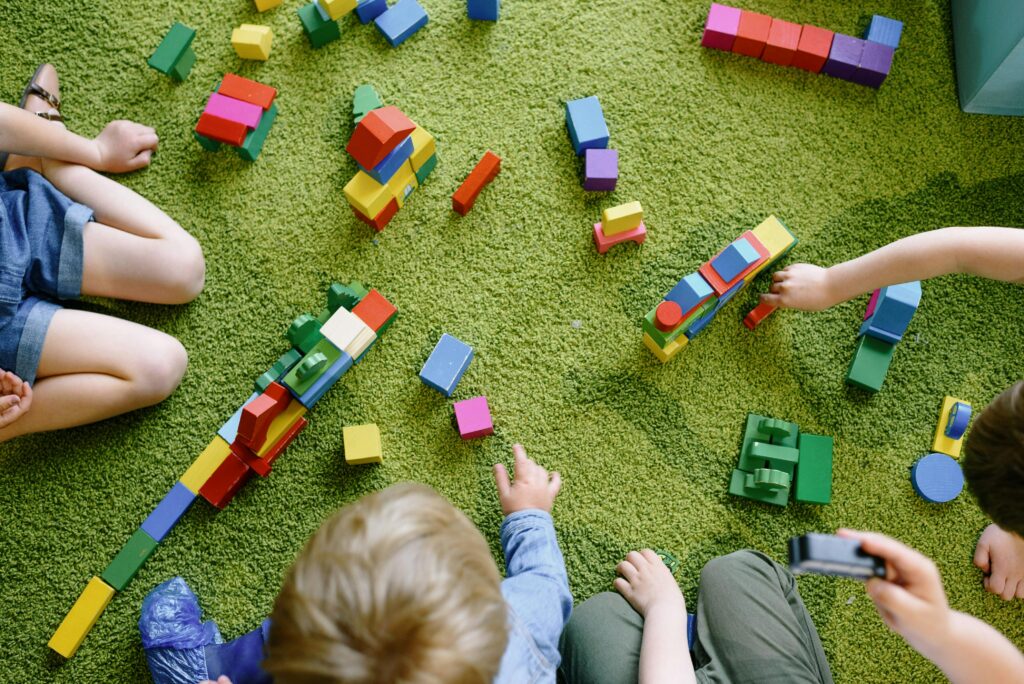Ontario is preparing a ‘back-to-basics’ curriculum for kindergarten
Ontario’s Minister of Education has announced plans to expand the province’s “back to basics” agenda for education into kindergarten. It is not clear yet, whether this will mean removing some of the broad expectations in the current kindergarten curriculum which focuses on helping “all learners develop the knowledge, skills, and perspectives they need to become informed, productive, caring, responsible, and active citizens in their own communities and in the world.” 
Starting in September 2025, Kindergarten students in Ontario will be required to learn sound-letter relationships, building phonics knowledge and vocabulary. To further build foundational math skills, students will also be introduced to fractions, patterns and coding.
The province says that increasing the focus on academic skills, combined with hands-on and play-based learning, will ensure students entering Grade 1 across Ontario have the foundational skills in reading, writing and math that will help set them up for long-term success.
The province has committed to holding consultations with teachers, education experts and other stakeholders over the next few months, with plans for a spring 2025 release and implementation in September 2025.
What will be new and what remains unchanged?
For reading, students would be introduced to sound-letter relationships, develop phonics knowledge and will learn how to use specific vocabulary. For example, as children are constructing a house with building blocks and other materials, the educator would intentionally use new words to build student vocabulary.
Math instruction would include learning about fractions, coding and patterns. These new lessons will build foundational math concepts and skills that are the gateway to the disciplines of science, technology and engineering, as well as construction, skilled trades and architecture.
It is not clear yet whether the focus on the so-called basics will mean less focus on other foundational skills currently included in the kindergarten curriculum, such as critical thinking, problem-solving, communication, and social emotional learning. However, in the announcement of the planned changes, the province states that the full-day nature of the kindergarten program, the current teacher and early childhood educator staffing model, and the play-based learning approach will be maintained.
Common woes of past curriculum changes
Ontario, unfortunately, has a history of announcing curriculum changes without ensuring both comprehensive consultations with all the stakeholders involved, and sufficient time for staff to familiarize themselves with the changes.
The previous kindergarten curriculum was based on extensive research and input from experts. It will be vital that changes to the curriculum use the same evidence-based approach, and allow time for early childhood educators, teachers, educational assistants and school administrators to plan ahead for implementation.
Does the new plan clash with the basic premise of kindergarten?
There is extensive research showing that play-based learning is helpful in improving learning outcomes for young kids.
Ontario curriculum documents state that play-based learning in kindergarten ‘paves the way for future learning’. Children get to work out their ideas and explore theories and use what they already know to deepen their understanding and advance their learning. They explore, ask questions and learning happens in a seamless, natural environment.
It will be important to understand how the implementation of a more formal direct instruction approach along with more rigid learning outcomes can be integrated into a play-based learning model without losing the essence of play-based learning.
Ontario’s current kindergarten curriculum has been shown to equip students with foundational life skills that prepare them to learn, problem-solve, collaborate and communicate. It will be vital to ensure that those skills are not lost in the “back to basics” drive.
The benefits of play are recognized by the scientific community. There is now evidence that neural pathways in children’s brains are influenced by and advanced in their development through the exploration, thinking skills, problem solving, and language expression that occur during play.
Research also demonstrates that play-based learning leads to greater social, emotional, and academic success. Based on such evidence, ministers of education endorse a sustainable pedagogy for the future that does not separate play from learning but brings them together to promote creativity in future generations. In fact, play is considered so essential to healthy development that the United Nations has recognized it as a specific right for all children.
(Council of Ministers of Education, Canada, 2012)
